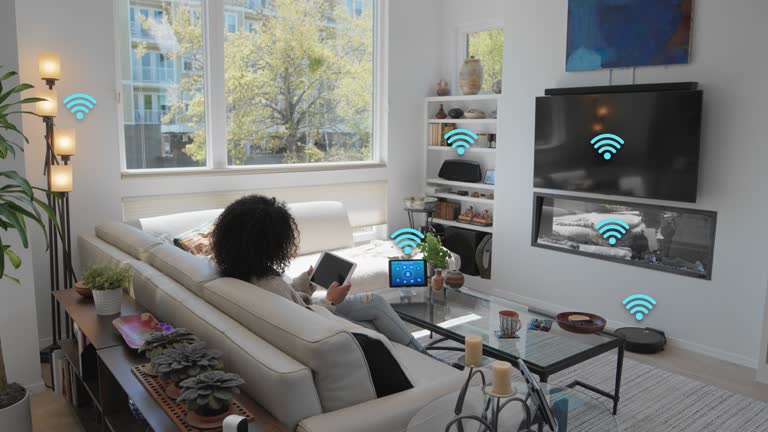
Revolutionizing Eco-Friendly Home Automation: Embracing Sustainability
Share
As our awareness of environmental issues grows, eco-friendly home automation innovations signal a transformative shift towards sustainable living. This exciting period provides tech enthusiasts and professionals with a unique opportunity to witness how modern technology is reshaping homes into efficient and sustainable havens. The fusion of sustainability with automation is not merely a vision for the future; it is a tangible reality that offers both ease of use and a smaller ecological footprint.
To truly appreciate the advancements in eco-friendly home automation, it's crucial to recognize the inspirations behind them. Smart technologies paired with eco-conscious practices minimize energy waste while enhancing our quality of living. From advanced thermostats to sophisticated lighting solutions, the potential is vast.

The Emergence of Smart Energy Solutions
A notable highlight in the realm of eco-friendly home automation is the development of smart energy solutions. These innovations effectively optimize energy usage, leading to decreased waste and lower energy bills. Smart thermostats, like those created by Nest and Ecobee, adapt to your lifestyle preferences and adjust home temperatures accordingly for maximum efficiency.
In addition, integrating solar panels with smart grid technologies enables homeowners to utilize renewable energy more effectively. According to Green City Times, the merger of solar energy with home automation systems can drastically reduce energy expenses and promote cleaner energy alternatives.
Smart Lighting Innovations
Lighting represents another crucial domain where eco-friendly home automation is having a profound effect. Systems like Philips Hue empower users to manage lighting remotely, automate light settings, and even customize light colors to fit their mood. These technologies help create inviting atmospheres while ensuring energy is consumed only when required.
Moreover, these lighting solutions can collaborate with motion sensors to turn off lights automatically in unoccupied spaces, further promoting energy conservation. As highlighted by Novatr, modern sustainable home designs increasingly incorporate such intelligent lighting options for both aesthetic allure and energy efficiency.
Innovations in Water Conservation
Water conservation is a vital aspect of sustainable living, and innovations in eco-friendly home automation are paving the way for significant improvements in this field. Smart irrigation systems adapt watering schedules based on weather conditions and soil moisture levels, ensuring gardens receive water only when its necessary.
Equally important, smart leak detection technologies notify homeowners of leaks as they occur, helping to prevent water loss and costly damage. These advancements not only conserve precious water resources but also lead to considerable savings on monthly water bills. For further insights on how technology is shaping water conservation, check out HowStuffWorks.
Looking Ahead: Prospects and Challenges
The outlook for eco-friendly home automation is promising, with continual advancements set to further enhance the sustainability of our homes. Nonetheless, challenges such as the upfront costs of installation and the necessity for widespread adoption remain to be tackled.
That said, as technology progresses and becomes more affordable, the chances for creating more eco-aware homes are substantial. By embracing these cutting-edge innovations, we can play our part in fostering a greener planet while reaping the rewards of modern conveniences.
Conclusion
To conclude, innovations in eco-friendly home automation are reshaping our lifestyles, presenting solutions that are both user-friendly and environmentally responsible. For tech enthusiasts and professionals, staying informed about these trends is vital as they represent the future of sustainable living. As we integrate these technologies into our daily lives, we are inching closer to achieving a harmonious existence between technology and the natural world.

FAQ
What advantages does eco-friendly home automation offer?
Eco-friendly home automation provides numerous advantages, such as lower energy consumption, reduced utility costs, and a minimized carbon footprint. Additionally, these systems enhance convenience by automating everyday tasks.
How do smart thermostats support sustainability?
Smart thermostats enhance sustainability by adapting to user behavior and accordingly adjusting temperatures. This optimization leads to energy savings by reducing waste and lowering energy charges.
What challenges exist when implementing eco-friendly home automation?
Despite their significant benefits, challenges include initial installation costs and the required widespread adoption to make a substantial environmental impact. However, as technology becomes more mainstream, these barriers are likely to decline.
